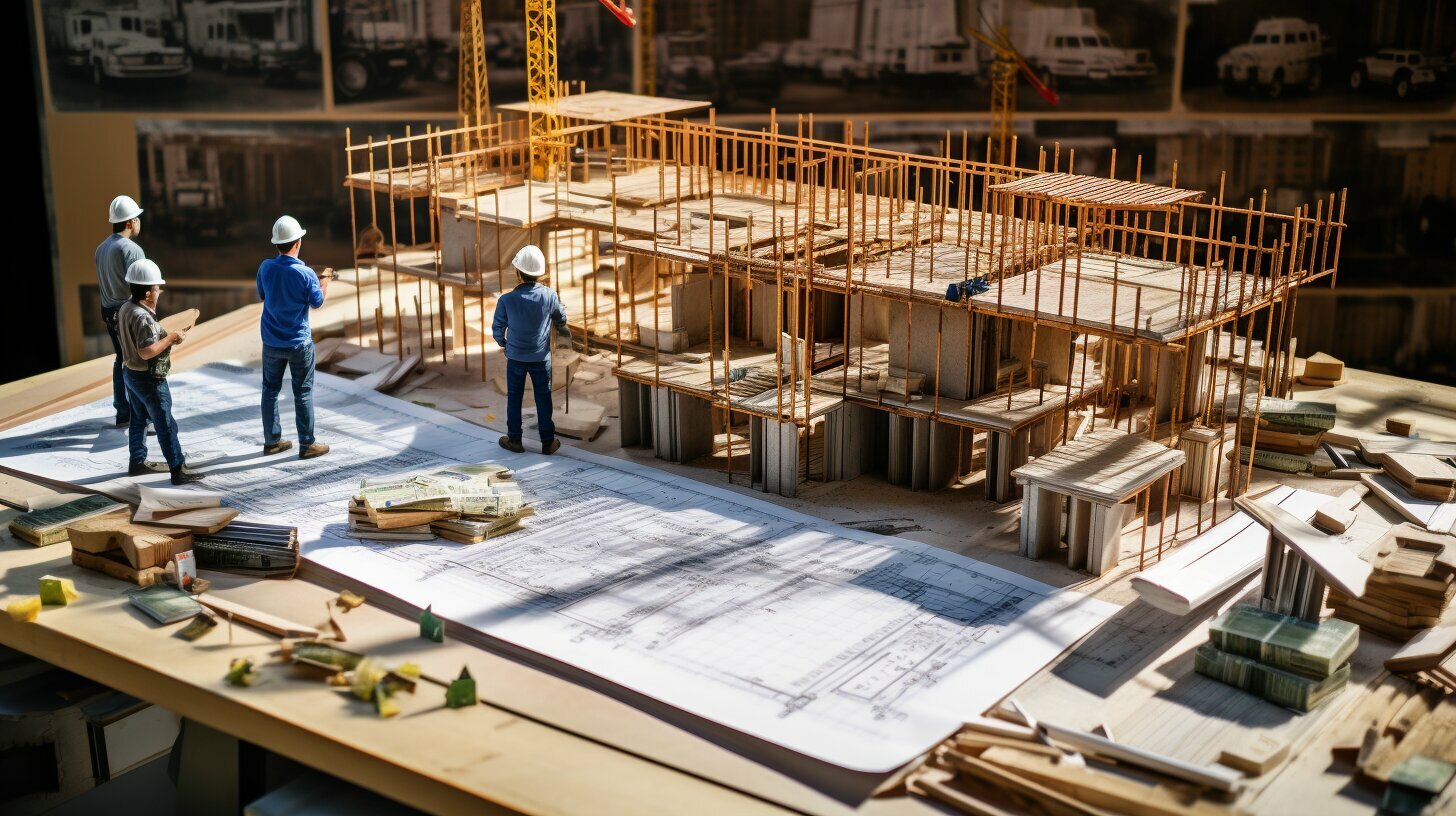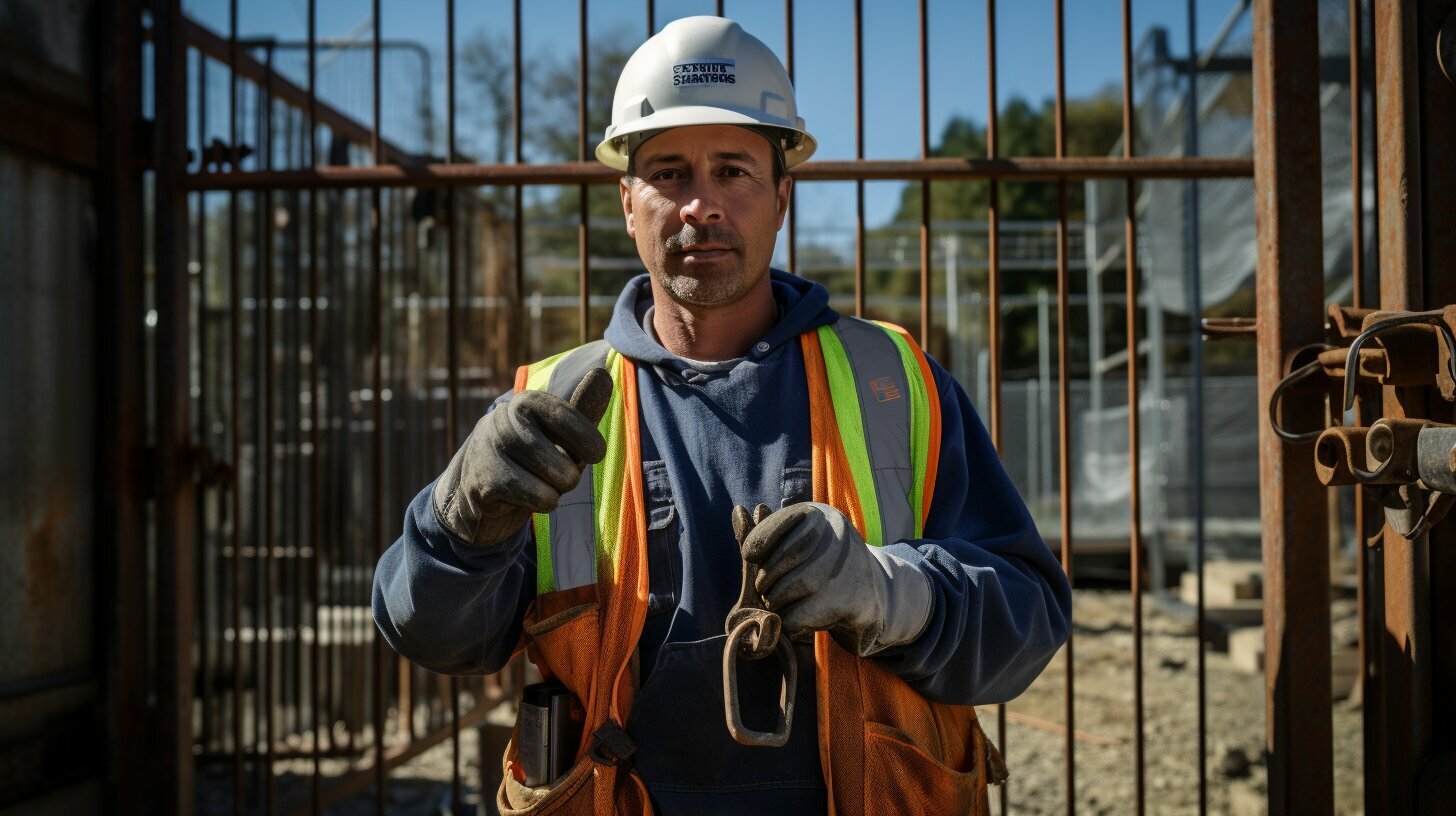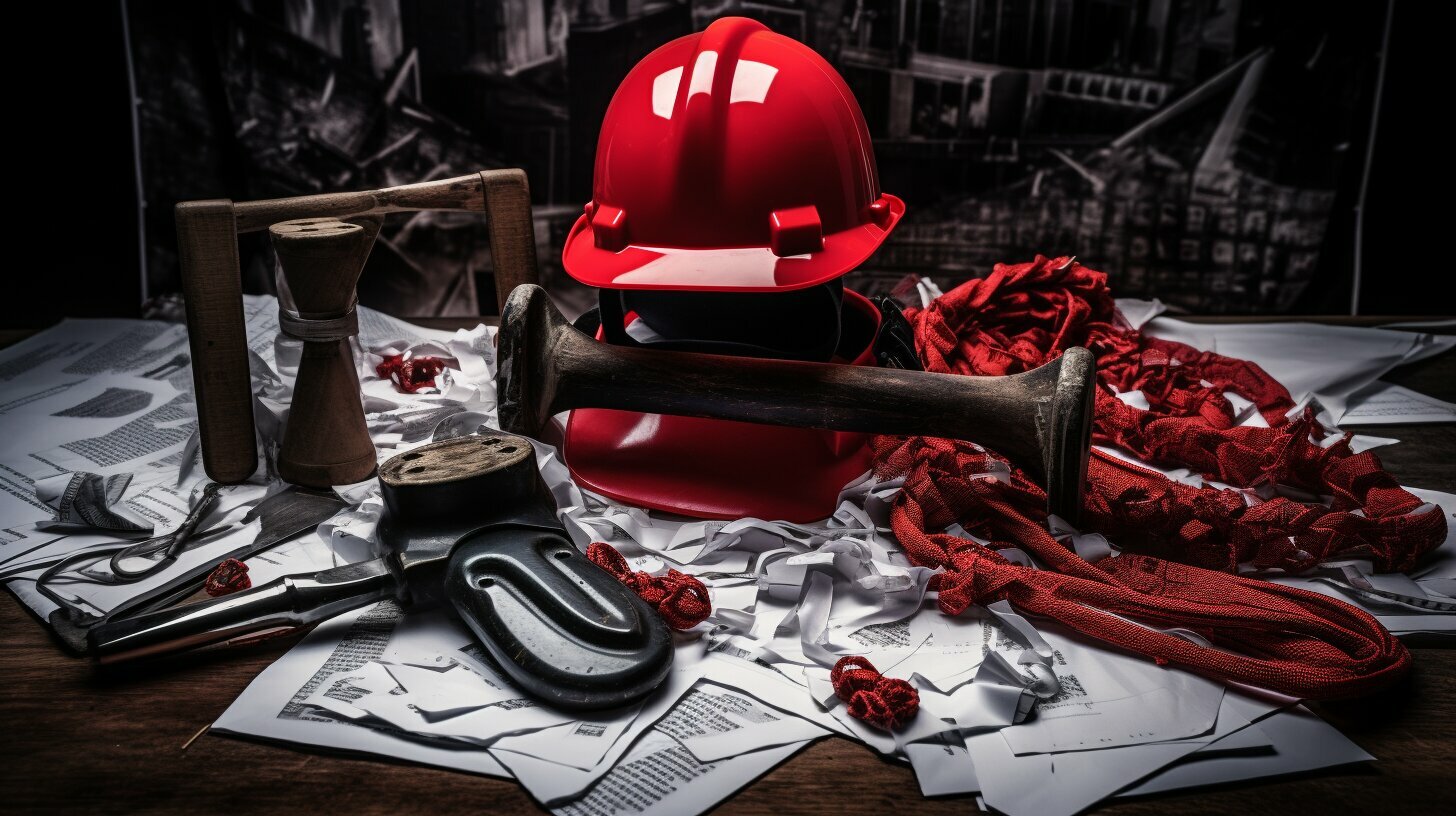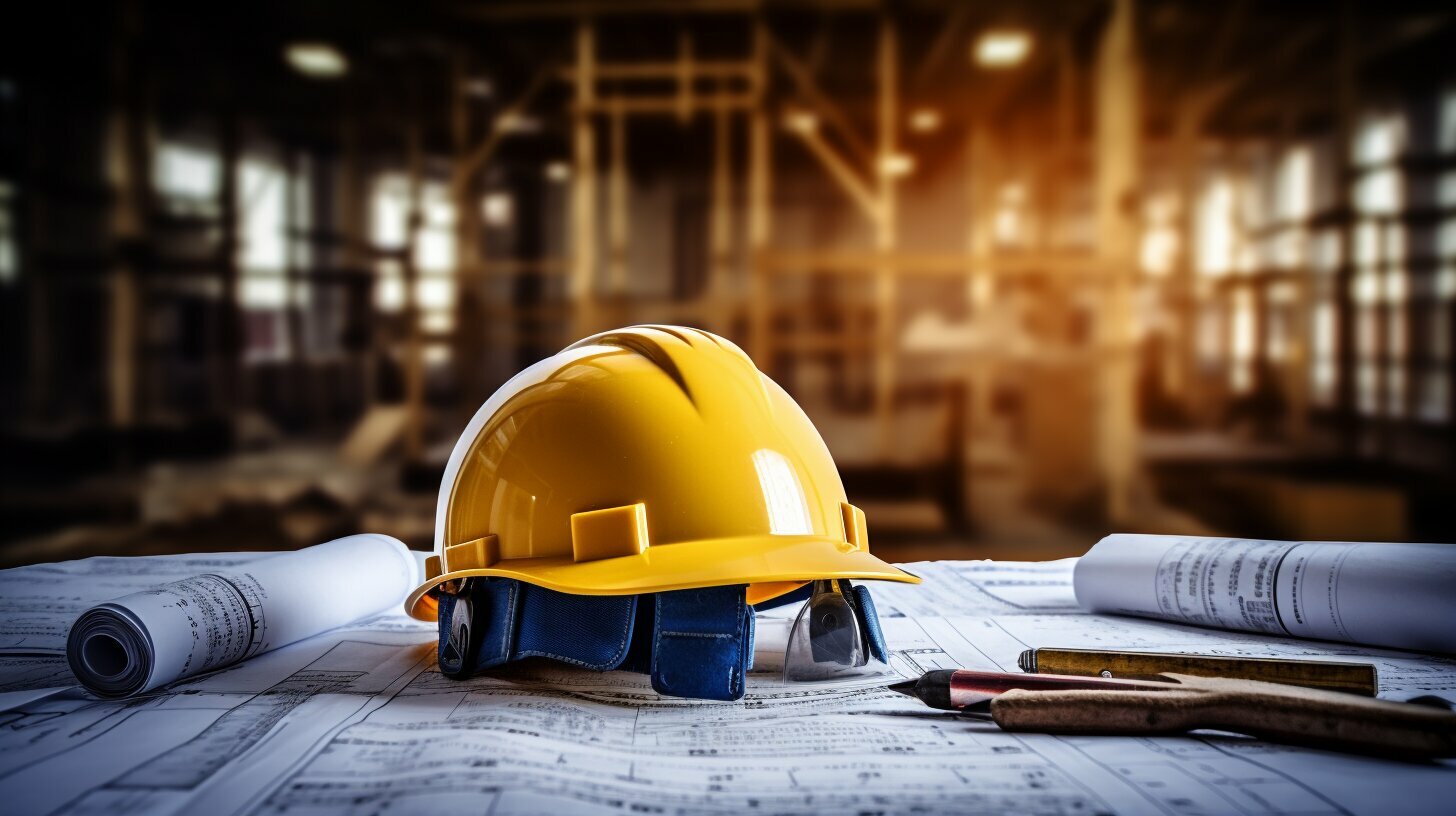
When embarking on a construction project, it is essential to understand the valuable role that a general contractor plays in ensuring its success. A general contractor is responsible for managing the project from start to finish, overseeing every aspect of the construction process. From creating and managing a construction budget to coordinating with subcontractors and ensuring compliance with building codes, their expertise and knowledge are crucial in delivering a high-quality project.
Key Takeaways:
- A general contractor has a wide range of responsibilities in construction projects, including project management, budgeting, hiring subcontractors, and ensuring compliance with building codes.
- They act as intermediaries between the owner and everyone involved in the project, ensuring effective communication and coordination.
- General contractors are licensed professionals who meet state requirements and regulations.
- Hiring a competent general contractor is essential for the success of your construction project.
- General contractors handle financial aspects, logistics, and address challenges that may arise during the construction process.
Managing the Construction Process from Start to Finish
A general contractor is the reliable point person who manages every aspect of a construction project, whether it involves home remodeling, renovations, commercial construction, or residential construction. They play a crucial role in overseeing the entire construction process, ensuring that all tasks are performed efficiently and according to the project’s specifications.
One of the key responsibilities of a general contractor is creating and managing a construction budget. They work closely with the project owner to determine the budget, allocate funds for different aspects of the project, and track expenses throughout the construction process. This ensures that the project stays within budget and avoids any financial setbacks.
To ensure a smooth construction process, general contractors also handle the hiring and coordination of subcontractors. They have an extensive network of reliable subcontractors and know how to select the right professionals for each job. By managing subcontractors and their schedules, general contractors keep the project on track and ensure that all tasks are completed in a timely manner.
| Responsibilities of a General Contractor | Details |
|---|---|
| Creating and managing a construction budget | Allocating funds, tracking expenses |
| Hiring and coordinating subcontractors | Managing schedules, ensuring timely completion |
| Collaborating with architects and designers | Ensuring project specifications are met |
| Overseeing construction work | Maintaining quality, resolving issues |
| Keeping the project on schedule | Tracking timelines, managing delays |
Another crucial aspect of a general contractor’s role is collaborating with architects and designers. They work closely with these professionals to ensure that the project’s design and specifications are met. General contractors oversee the construction work, ensuring that it is carried out to a high standard of quality. They also act as the main point of contact for issues or concerns that may arise during construction, resolving them promptly and efficiently.
By managing all aspects of the construction process, general contractors ensure that the project stays on schedule. They track timelines, identify potential delays, and take proactive measures to mitigate any issues that may arise. This level of project management expertise ensures that the construction project is completed safely, efficiently, and to the satisfaction of the project owner.
Collaborating with Experts and Ensuring Compliance
As experts in construction, general contractors are adept at coordinating the construction team, working closely with architects, subcontractors, and other professionals to ensure compliance with building codes and regulations. Their role in this collaboration is crucial for the successful completion of a construction project.
One of the primary responsibilities of a general contractor is to communicate effectively with the construction team. They act as a liaison between architects, subcontractors, and other professionals, ensuring that everyone understands their roles and responsibilities. By facilitating clear communication, general contractors foster a productive and harmonious working environment.
General contractors also play a vital role in ensuring compliance with building codes and regulations. They work closely with architects to review plans, ensuring that the construction project meets all necessary legal requirements. This includes obtaining the required permits and licenses, conducting inspections, and adhering to safety protocols. By overseeing compliance, general contractors ensure that the project proceeds smoothly and without any legal or regulatory issues.
In addition to coordination and compliance, general contractors are responsible for managing the construction process efficiently. They maintain a keen eye on the project timeline, ensuring that tasks are completed in a timely manner. Should any challenges or delays arise, they are skilled at problem-solving and finding practical solutions to keep the project on track.
| Key Responsibilities: | Benefits of Collaboration: |
|---|---|
|
|
Collaboration, compliance, and efficient project management are integral aspects of a general contractor’s responsibilities. Their experience and expertise contribute to successful construction projects that meet both the client’s expectations and legal requirements.
Handling Financial Aspects and Logistics
Beyond the construction itself, general contractors are also skilled in managing the financial aspects and logistics of a project, taking charge of the construction budget and handling payment processes while ensuring the completion of post-construction responsibilities. A key responsibility of general contractors is to create and manage the construction budget. They carefully allocate funds for various aspects of the project, such as labor, materials, permits, and unforeseen expenses. By closely monitoring the budget, general contractors ensure that resources are utilized efficiently, helping to keep the project on track financially.
In addition to budget management, general contractors are responsible for handling payment processes. This involves coordinating with subcontractors and suppliers to ensure timely and accurate payments are made. They collect payroll deductions from project participants, ensuring that everyone involved in the project receives fair compensation for their work.
Furthermore, general contractors play a crucial role in managing post-construction responsibilities. This includes collecting lien waivers, which provide proof of payment to subcontractors and suppliers, protecting the project owner from potential legal issues. By diligently collecting lien waivers, general contractors ensure that all parties involved in the project are properly compensated and that the owner is protected from any potential claims.
| Responsibilities | Construction Services |
|---|---|
| Creating and managing the construction budget | Project cost estimation, budget planning, financial tracking |
| Handling payment processes and payroll deduction | Coordination with subcontractors and suppliers, accurate and timely payment |
| Collecting lien waivers | Proof of payment to subcontractors and suppliers, avoiding legal issues |
In conclusion, general contractors not only oversee the construction process but also take charge of the financial aspects and logistics of a project. They ensure that the construction budget is effectively managed, payments are processed accurately and on time, and post-construction responsibilities are fulfilled. Their expertise in these areas is essential for the successful completion of any construction project.
Addressing Challenges and Ensuring Smooth Progress
A crucial aspect of a general contractor’s role is addressing challenges head-on, efficiently solving any issues that may arise, and maintaining smooth progress throughout the construction process. From managing unexpected delays to coordinating with multiple subcontractors, general contractors must exhibit strong project management skills to navigate through potential obstacles successfully.
One of the primary challenges that general contractors face is coordinating the construction team effectively. They must ensure that all subcontractors are working in sync, adhering to the project timeline, and completing their respective tasks promptly. This requires exceptional communication and coordination skills to minimize delays and keep the project on schedule.
In addition to team coordination, general contractors also play a vital role in problem-solving and finding solutions to unexpected issues. Whether it’s uncovering structural concerns during the building process or encountering permit delays, general contractors must address these challenges promptly and efficiently. They work closely with architects, engineers, and subcontractors to find practical solutions that maintain both quality and progress.
Managing the construction process also involves effectively dealing with changes and adjustments. General contractors must handle change orders, which may arise due to design modifications or unexpected site conditions. These change orders require careful evaluation and coordination to ensure smooth progress and avoid unnecessary disruptions.
By effectively addressing challenges head-on, general contractors play a pivotal role in ensuring smooth progress throughout the construction process. Their expertise in project management, contractor responsibilities, and construction team coordination allows them to navigate through obstacles, keep the project on track, and deliver successful outcomes.
| Key Challenges | General Contractor Solutions |
|---|---|
| Construction team coordination | Regular communication, clear expectations, and efficient scheduling |
| Unexpected issues and delays | Quick problem-solving, collaboration with experts, and adaptability |
| Change orders and modifications | Effective evaluation, coordination, and documentation |
In Conclusion
Hiring a qualified general contractor is vital to achieving successful construction projects, as their expertise in project management, coordination, compliance, and financial aspects ensures a smooth and efficient construction process.
A general contractor plays a crucial role in overseeing construction projects. They are responsible for managing the project from start to finish and ensuring that it is completed safely, on time, and to specifications. General contractors handle various tasks, including creating and managing a construction budget, hiring subcontractors, and collaborating with architects. They act as intermediaries between the owner and everyone involved in the project.
General contractors are licensed professionals who meet state requirements and regulations. They work alongside subcontractors, project managers, and construction managers to ensure a smooth construction process. General contractors are involved in the payment process, collecting payroll deductions from project participants to ensure everyone gets paid. Additionally, they handle change orders and manage any delays or issues that may arise during the construction process.
Hiring a good general contractor is essential for project success. They manage post-construction responsibilities such as collecting lien waivers and ensuring payment to subcontractors. They also play a role in securing permits, ordering building materials, and managing the demolition and installation of finish materials. With their expertise and experience, general contractors address challenges and ensure a smooth progress toward project completion.
FAQ
What is the role of a general contractor in construction projects?
A general contractor is responsible for managing the entire construction project from start to finish. They oversee the project, ensure it is completed safely, on time, and to specifications, and handle various tasks such as creating and managing the construction budget, hiring subcontractors, collaborating with architects, and overseeing construction work.
What qualifications do general contractors have?
General contractors are licensed professionals who meet state requirements and regulations. They have the necessary expertise and experience to manage construction projects effectively.
What is the importance of hiring a good general contractor?
Hiring a competent general contractor is crucial for project success. They work alongside subcontractors, project managers, and construction managers to ensure a smooth construction process, manage the payment process, secure permits, order building materials, handle change orders, and address any delays or issues that may arise.
What are the responsibilities of general contractors after construction completion?
After construction completion, general contractors handle post-construction responsibilities such as collecting lien waivers and ensuring payment to subcontractors. They act as intermediaries between the owner and everyone involved in the project to ensure all parties are handled appropriately.
How do general contractors collaborate with experts and ensure compliance?
General contractors collaborate with architects and subcontractors to ensure compliance with building codes and regulations. They coordinate with these experts to make sure the project meets all necessary standards throughout the construction process.
How do general contractors address challenges during construction?
General contractors are skilled at addressing challenges that may arise during the construction process. They manage and troubleshoot issues, ensuring smooth progress toward project completion. Their expertise in project management and coordination helps overcome obstacles efficiently.
continue reading
Related Posts
Obtaining a general contractor license is a crucial step towards
Acquiring a general contractor license involves a multi-step journey that
A general contractor plays a crucial role in construction projects,




